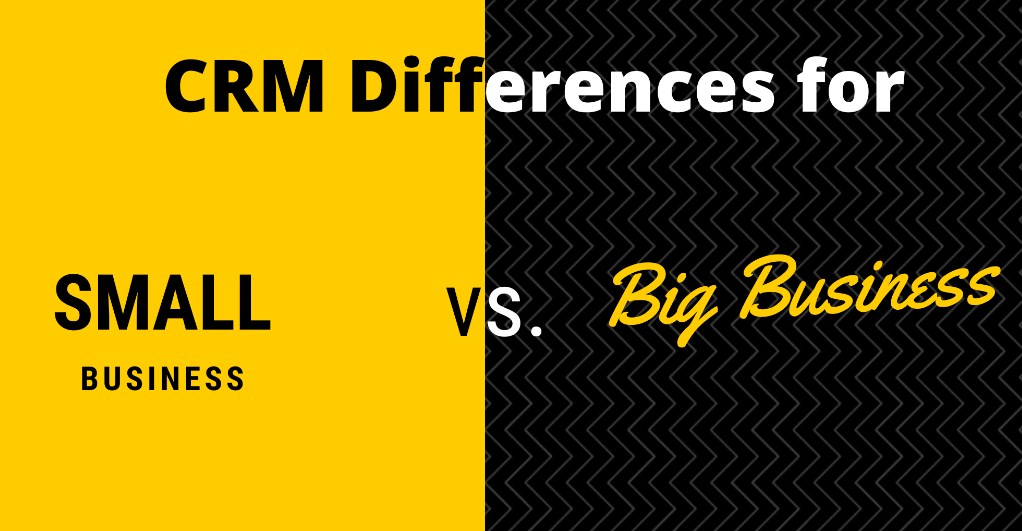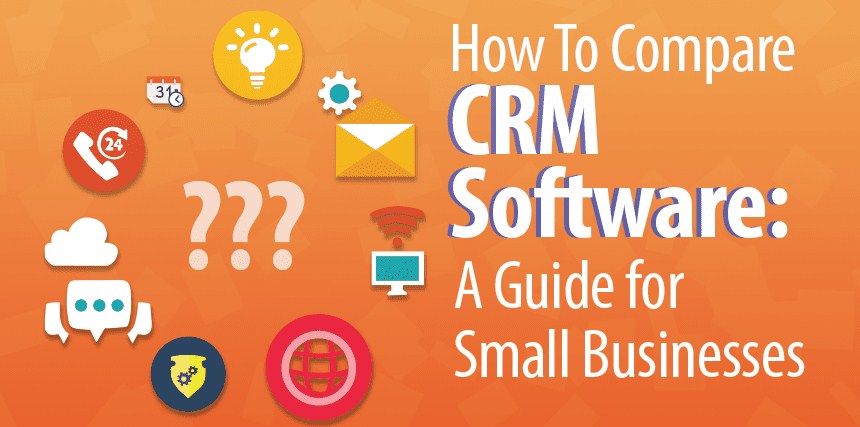CRM comparison for small business – For small businesses, selecting the right Customer Relationship Management (CRM) software can be a game-changer. A CRM system helps businesses manage their customer interactions, track leads, and streamline sales processes. However, with so many options on the market, how do you choose the best one? In this guide, we’ll compare the top CRM solutions for small businesses, discuss the benefits of using CRM, and explore how to buy the right tool for your needs.
Key Benefits of Using CRM for Small Business

A CRM system offers numerous benefits for small businesses, especially when it comes to managing customer relationships and improving operational efficiency. Here are a few of the top advantages:
- Improved Customer Relationships: Keep track of customer details and history to provide personalized communication.
- Increased Sales: Automate and streamline sales processes, leading to more closed deals and higher conversion rates.
- Better Customer Insights: Gain deeper insights into customer behavior, enabling better marketing and sales strategies.
- Efficiency & Productivity: Reduce manual data entry, automate repetitive tasks, and improve team collaboration.
- Scalable Growth: A CRM system grows with your business, adapting to increased customer data and more complex needs.
Top 5 CRM Tools for Small Businesses in 2024
1. HubSpot CRM
Overview: HubSpot CRM is a widely recognized and user-friendly tool designed for businesses of all sizes. It’s especially beneficial for small businesses that need an intuitive CRM without a steep learning curve.
Use Case: Ideal for small businesses just starting with CRM tools, HubSpot CRM allows users to manage contacts, track sales, and automate marketing tasks without a huge time investment.
Features:
- Contact management
- Email tracking and templates
- Sales pipeline management
- Marketing automation
- Reporting and analytics
Pros:
- Free to use with basic features
- Easy to set up and navigate
- Integrates well with other HubSpot tools (marketing, sales, and service hubs)
Cons:
- Limited features in the free version
- Some advanced features require paid plans
Price: Free plan available, paid plans start at $50/month.
2. Zoho CRM

Overview: Zoho CRM is an affordable and flexible CRM solution designed for small businesses that need powerful features at an accessible price.
Use Case: If your business needs a cost-effective CRM with strong automation and customization features, Zoho CRM is an excellent choice. It’s perfect for businesses that want to grow without paying for enterprise-level solutions.
Features:
- Lead and deal management
- Sales forecasting
- Email marketing automation
- Customizable dashboards and reports
- Integrations with popular apps (Google Workspace, Mailchimp, etc.)
Pros:
- Flexible pricing options
- Highly customizable
- Excellent customer support
Cons:
- Can be overwhelming for beginners
- Some advanced features require higher-tier plans
Price: Free plan available for up to 3 users, paid plans start at $14/month/user.
3. Salesforce Essentials
Overview: Salesforce is one of the most well-known CRM platforms globally, and Salesforce Essentials is specifically designed for small businesses to leverage Salesforce’s power without the complexity of its full-scale enterprise solutions.
Use Case: Salesforce Essentials is ideal for growing small businesses looking to scale with a CRM solution that’s customizable and integrates seamlessly with a range of apps.
Features:
- Contact and lead management
- Customizable sales pipeline
- Email integration and tracking
- Reporting and analytics
- Mobile app for on-the-go CRM management
Pros:
- Powerful automation tools
- Excellent scalability for growing businesses
- Extensive integration options
Cons:
- Steep learning curve for new users
- Expensive compared to other small business CRMs
Price: Starts at $25/month/user for the Essentials plan.
4. Pipedrive
Overview: Pipedrive is a sales-focused CRM that helps small businesses manage their sales pipelines and increase deal closure rates. It’s known for its ease of use and powerful features tailored to sales teams.
Use Case: Perfect for small businesses that need a simple yet effective sales pipeline management system. Pipedrive is designed for sales-driven teams that want to focus on moving deals through the pipeline.
Features:
- Visual sales pipeline
- Email integration and tracking
- Workflow automation
- Sales reporting and analytics
- Customizable dashboards
Pros:
- User-friendly interface
- Strong focus on sales and pipeline management
- Affordable pricing
Cons:
- Limited marketing automation features
- Not as customizable as other CRMs
Price: Starts at $14.90/month/user.
5. Freshsales
Overview: Freshsales is an intuitive CRM designed for small businesses that want to manage their sales cycle from lead generation to closing the deal. It’s part of the Freshworks suite of business tools.
Use Case: Freshsales is great for small businesses that need a CRM that’s easy to use but still packed with advanced features such as AI-based insights and customizable automation.
Features:
- Lead scoring and segmentation
- Sales pipeline management
- Built-in phone, email, and chat
- AI-based sales insights
- Customizable workflows and reporting
Pros:
- Affordable and easy to use
- AI-powered sales forecasting
- Integrates well with Freshworks tools
Cons:
- Limited features in the free plan
- Advanced features require higher-tier plans
Price: Free plan available, paid plans start at $15/month/user.
CRM Comparison Table
| CRM Tool | Best For | Pros | Cons | Price |
|---|---|---|---|---|
| HubSpot CRM | Small businesses starting with CRM | Free, easy to use, integrates with HubSpot tools | Limited features in free plan | Free, paid plans from $50/month |
| Zoho CRM | Cost-effective, flexible solution | Customizable, affordable, excellent support | Can be overwhelming for beginners | Free plan for 3 users, paid from $14/month/user |
| Salesforce Essentials | Businesses that need scalability | Powerful automation, scalability | Steep learning curve, expensive | From $25/month/user |
| Pipedrive | Sales-focused businesses | User-friendly, sales pipeline management | Limited marketing automation features | From $14.90/month/user |
| Freshsales | Businesses needing AI-powered CRM | AI insights, easy to use, integrates with Freshworks | Limited features in free plan | Free plan available, paid from $15/month/user |
Why Small Businesses Need CRM Software
Small businesses often juggle many tasks, and keeping track of customer interactions can be overwhelming. CRM software solves this problem by providing a centralized system to manage all customer interactions, which helps businesses improve communication and sales efforts.
- Centralized Customer Data: With CRM, all customer information is stored in one place, reducing the need to search through emails or spreadsheets.
- Automated Sales Processes: Automate tasks such as lead scoring, follow-ups, and appointment scheduling to save time and reduce human error.
- Enhanced Customer Service: Use CRM to track customer issues, manage tickets, and ensure follow-up, providing better support and improving customer satisfaction.
Where and How to Buy the Best CRM Tool
To purchase any of the CRM tools mentioned in this article, visit their official websites to explore more about pricing plans and features.
- HubSpot CRM – Free to start, easy to scale as your business grows.
- Zoho CRM – Affordable pricing with flexible plans.
- Salesforce Essentials – Sign up for a free trial and explore powerful CRM features.
- Pipedrive – Start with a free trial to test out the sales pipeline management.
- Freshsales – Offers a free plan to get started.
How to Buy CRM Software:
- Sign Up for a Trial: Most CRM providers offer free trials. Use them to test the features and functionality.
- Choose Your Plan: Depending on your business size, select the plan that best suits your needs.
- Subscribe and Implement: After choosing the plan, subscribe, and start setting up the CRM system.
5 FAQs About CRM for Small Businesses
1. What is CRM software?
CRM software is a tool that helps businesses manage interactions with current and potential customers. It stores customer data, tracks leads, and automates various business tasks.
2. Why do small businesses need CRM?
CRM helps small businesses improve customer relationships, increase sales, and enhance overall efficiency by providing a centralized system to manage all customer interactions.
3. How much does CRM software cost?
The cost of CRM software varies depending on the provider and the plan. Some CRM tools offer free plans, while others have paid options starting from $14/month/user.
4. What is the best CRM for small businesses?
The best CRM depends on your business needs. Popular choices for small businesses include HubSpot CRM, Zoho CRM, Salesforce Essentials, Pipedrive, and Freshsales.
5. How do I choose the right CRM for my business?
Consider your business size, budget, and features needed. If you need a simple CRM, HubSpot or Pipedrive may be a good choice. For more complex needs, Salesforce or Zoho CRM might be better options.
With this detailed CRM comparison for small businesses, you’re now equipped to make an informed decision. Whether you’re just getting started or looking to scale, the right CRM can help streamline your processes, improve customer satisfaction, and drive business growth!
Read More >>>
- HRIS Certificate Course: A Complete Guide to Unlocking Career Growth in HR Technology
- Strategic HR Planning Model: Optimize Workforce Planning with HR Software